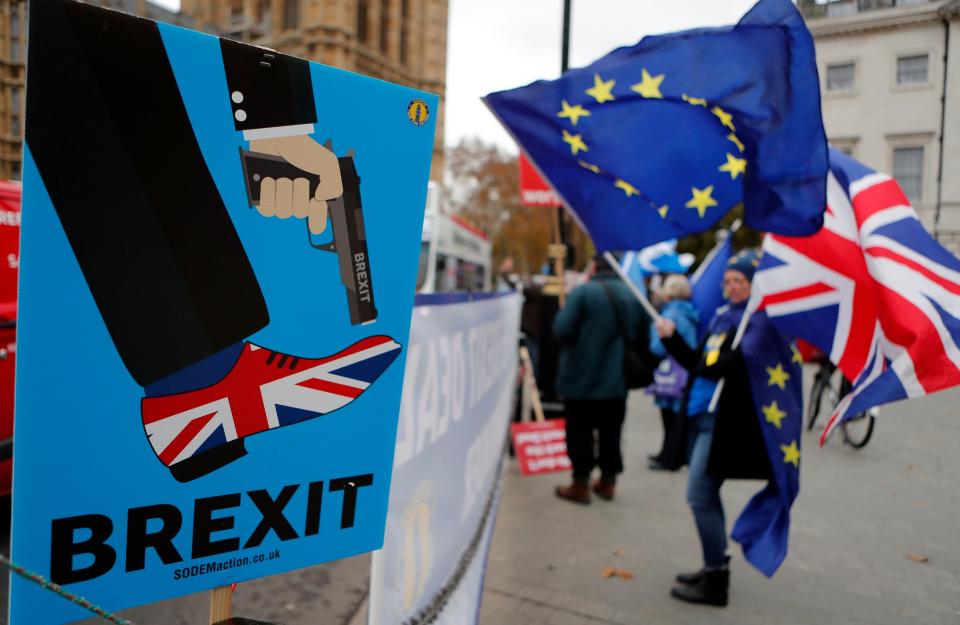With next week’s Brexit showdown on the horizon, now is the time to seek clarity about Britain’s future
It is often remarked that “a week is a long time in politics”. Next week will feel especially long due to the momentous decisions parliament will make – but also because the fog of Brexit has never been thicker and more impenetrable.
So far from resolving matters and providing a clear choice, the prime minister’s agreements with the European Union have, if anything, added to the many confusions. Theresa May says that the country will enter “uncharted waters” if her Brexit deal is rejected by MPs, which is a polite description of the mess unfolding in front of us.
Remember “nothing is agreed before everything is agreed”? By now we should have had the future trade treaty in front of us to judge beside the now agreed UK-EU withdrawal treaty – the whole package. Yet all we have is a woolly political declaration, with no guarantees for the future. This is the “blind Brexit” many on all sides feared. There is little to form a verdict about.
The least we can do, then – legislators, public and media alike – is to be clear about what we are all so unclear about. Or as clear as can be. This is why The Independent has tried to provide as solid, logical and factual answers as possible to the many questions facing us.
Will the prime minister’s deal be passed by the Commons? What are the alternatives? What are their chances of acceptance in Westminster or Brussels? How realistic are they? Would “Norway plus” be adopted easily? Are there easy steps to avoid a customs backstop and avoid a hard border on Ireland? Could there be a general election? What might then happen? Could there be a further referendum? Or a new prime minister?
What is apparent, as it has been for some time, is that the UK’s options are not determined by parliament alone. If they wished, our MPs and peers could vote to abolish the laws of gravity and form a free trade area with Mars. It does not mean they would get them, especially if the Martians had Michel Barnier working for them.
There are practical limits, in other words, to sovereignty even for the mightiest super power, let alone a middle-ranking European state with delusions of grandeur. A large part of the Brexit process has been about teaching the British the modern day realities of economic life: Cakeism has not been a winning doctrine.
The most frustrating aspect of the Brexit endgame is that parliament has been unable to set a path forward for the nation – and next week will merely confirm that fact. They are still going round in circles, the opposition parties as well as the government, each more or less divided, and often in three or more directions.
The public, who are now, since the 2016 referendum, the sovereign political power, are reduced to watching from the window the car crash and its aftermath below. We can yell out, but do nothing. It is however the British people’s supreme right to say what their country’s relationship with Europe should be – a decision that will affect every family for decades to come.
Jobs, living standards, national security, political power, educational and cultural opportunities depend upon it. We say to parliament: do not postpone vital votes; do not kick the can down the road again; do not engage in dreams about deals that do not and never will exist. Give the people the Final Say, and they will take the challenge, and decide their own fates. Then the week will not turn out to be another wasted one.
The Independent has of course campaigned loudly in favour of a Final Say referendum, but nonetheless remain just as committed to two other causes: making sense of complex issues, and providing our readers with news and facts you can trust.

 Yahoo News
Yahoo News 

